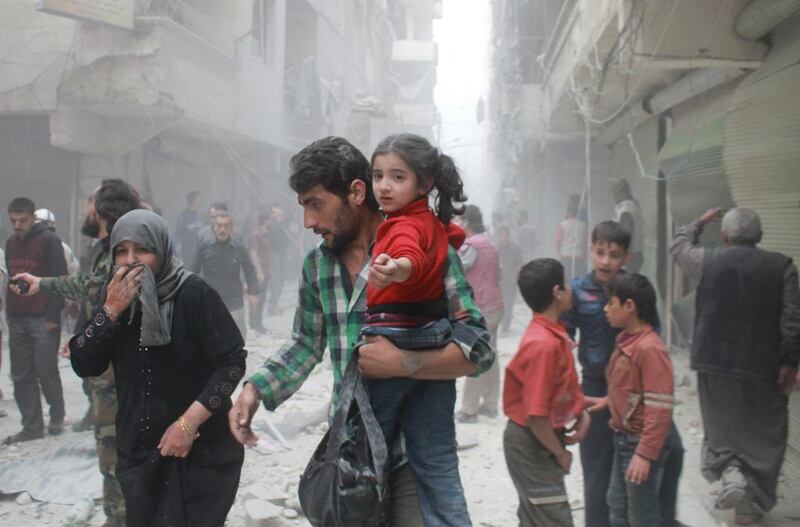Earlier this month, there appeared to be genuine impetus to end the conflict in Syria. Now it seems that hope has been snuffed out as the recent spat between Saudi Arabia and Iran has exposed, once more, deep fractures in the region.
Some analysts argue that the Saudis are hard-pressed to continue backing opposition groups, especially given their commitments elsewhere in the region.
This might be the crux of what was behind Riyadh's thinking in creating an antiterrorism union last year with other, mostly Sunni countries.
Not only would this coalition bolster the Saudis’ negotiating hand on the Syrian crisis, but it would also bring together resources, material and soldiers. But does the recent spat with Iran mean that the broader international community has taken its eyes off thousands of starving Syrians across the country?
According to the UN Office for the Coordination of Humanitarian Affairs, up to 4.5 million people in the war-torn country “live in hard-to-reach areas, including nearly 400,000 in 15 besieged locations that do not have access to the life-saving aid they urgently need”. The UN claims that in the last year, only 10 per cent of all requests for UN inter-agency convoys to these areas were approved and delivered.
But what that means in terms of actual numbers of people getting fed is deeply disturbing and begs the question of what is the role of such international organisations?
Last week the UN Security Council held an emergency meeting to press Syria's warring parties to lift sieges on towns where hundreds of thousands have been cut off from aid.
Ban Ki-moon, the UN secretary general, said the organisation and its humanitarian partners are able to deliver food to only one per cent of the 400,000 people under siege in Syria, meaning that 396,000 people are stranded in areas without any humanitarian access.
The UN chief said both the Syrian government and rebels are committing war crimes by deliberately starving civilians and must face justice.
“UN teams have witnessed scenes that haunt the soul,” Mr Ban said.
“The elderly and children, men and women, who were little more than skin and bones: gaunt, severely malnourished, so weak they could barely walk, and utterly desperate for the slightest morsel."
“I would say that they are being held hostage – but it is even worse. Hostages get fed.”
This week humanitarian agencies expressed concern that an estimated 200,000 people are facing “sharply deteriorating conditions” in the besieged western side of Deir Ezzor city in Syria.
The UN, Red Crescent and the International Committee of the Red Cross have partnered on aid deliveries to two towns near the Lebanese border and two others farther north near the Turkish one.
They said in a joint statement that aid to Foua and Kefraya, two villages in northern Syria, had to be “postponed” after rebels told them they needed more time to finalise security arrangements.
Samantha Power, US ambassador to the UN, called particular attention to 15 areas under siege, saying the Syrian government is responsible for 12 of the blockades and that at least 35 people have died there since the beginning of December.
The UN says 13.5 million people are in need of aid nationwide.
But with the Saudis and the Iranians unlikely to face each other at the talks and little hope for real progress, there is almost no prospect of holding the UN to account in Syria, as the deficit between its targets for delivery of relief and what it is actually able to do, widens.
Martin Jay is a correspondent for The Daily Mail and Deutsche Welle TV in Beirut
On Twitter: @MartinRJay





